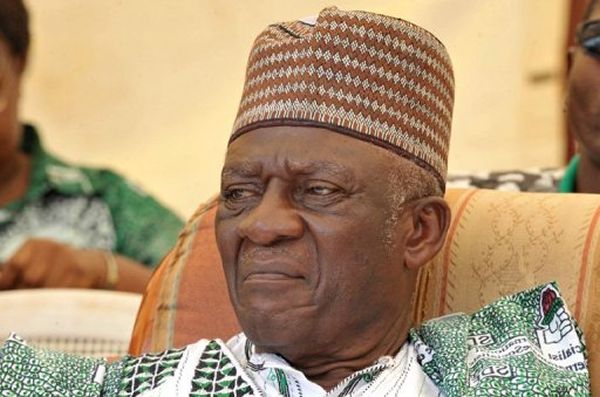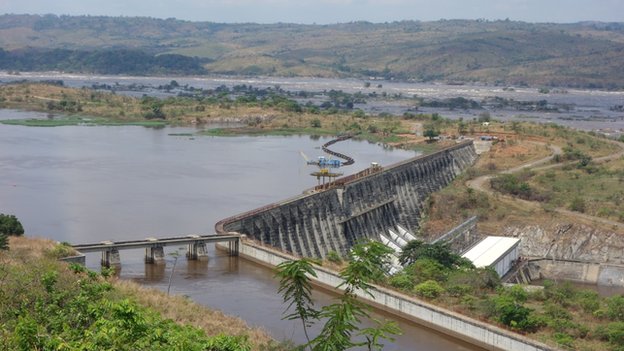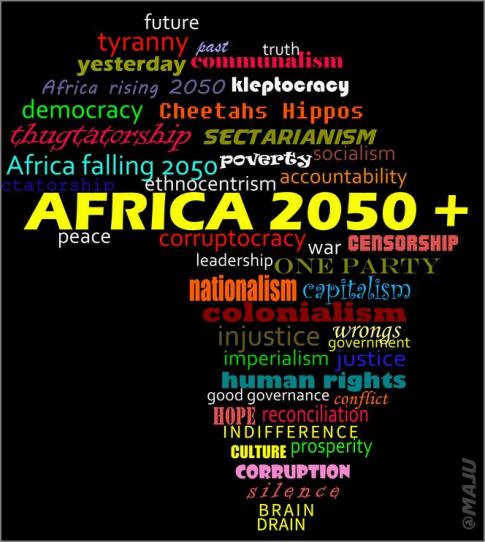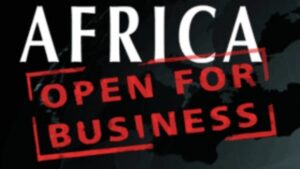The Women in Global Health (WGH) Movement honored Kenya’s Mercy Owuor of Lwala Community Alliance alongside 12 other women at the movement’s “Heroines of Health” gala event that took place last evening in the Swiss Capital Geneva, on the margins of the ongoing World Health Assembly.
WGH is a movement that strives for greater gender equality in global health, and is dedicated to empowering female leaders of today and improving the global health of tomorrow [1]. It is recognizing Mercy for her role in the “help a child reach their 5th birthday” initiative that is championed by the Lwala Community Alliance initiative. This initiative strives to extend clinical services and community outreach efforts to children under the age of 5 in order to reduce under-5 mortality in the community by 64% [2].
Mercy Owuor is the community programs director for Lwala Community Alliance in Migori, Kenya, where she oversees the Kenya program team, leads and directs the execution of the annual program plan. Lwala Community Alliance is a community-led innovator, tackling the multidimensional drivers of poor health. It works with primary care facilities and the communities to drastically reduce maternal and child mortality in western Kenya, by tackling the key drivers of deaths – unplanned pregnancies, mother-to-child transmission of HIV, poor prenatal care, unskilled deliveries, poor clinical practices, lack of emergency transport, and delayed treatment of childhood illnesses [3].
In 2016, the Alliance was selected as one of the 17 Social Enterprises (http://APO.af/t7sHuF) that took part in the Healthymagination Mother and Child Program, an accelerator initiative of GE Healthymagination (www.GE.com/about-us/healthymagination) and the Miller Center for Social Entrepreneurship (www.SCU.edu/MillerCenter). Designed to equip the participating social enterprises to scale up their businesses and attract additional investment, the program involves a three-day, in-person workshop, followed by a six-month online accelerator program that included weekly, in-depth mentoring from Silicon Valley-based executives who themselves have undergone rigorous selection and training as social entrepreneur mentors at the Miller Center, as well as GE business leaders. Participating social entrepreneurs get to acquire business fundamentals, improve their strategic thought processes, and articulate a business plan that demonstrates impact, growth and long-term financial sustainability.
“We are thrilled for Mercy and for the Lwala Community Alliance for this well-deserved recognition” said Robert Wells, Executive Director, GE Healthymagination. “We believe that social enterprises such as these are a key part of the formula that is required to innovatively and sustainably bring quality care to communities in otherwise underserved areas. It is for this reason that we launched the healthymagination Mother and Child programme to equip amazing individuals such as Mercy that are striving to increase the quality, access and affordability of maternal and child health in sub-Saharan Africa”
As one of the key partners of the WGH movement, GE Healthcare actively supports its’ vision to elevate and support the role of women in healthcare, whilst creating gender responsive leaders in global health.
“Mercy, together with her colleagues at Lwala, has dedicated her life to work within her community to bring accessible and innovative healthcare delivery solutions that not only address care, but also prevention and healthy behavior. She is indeed a great ambassador for the many women leaders in Africa and the world over, that are striving to serve the 5.8 billion people with little to no access to quality healthcare,” said Terri Bresenham, President and CEO, Sustainable Healthcare Solutions, GE Healthcare. “At GE, we are very proud to be associated with the Women in Global Health Campaign and its’ amazing honorees, and look forward to continuing to partner with them for a healthier world.”
[1] Women in Global Heath. Available from www.WomenInGH.org/about. Last accessed May 2017.
[2] Lwala Community Alliance, Programs. Available from http://LwalaCommunityAlliance.org/programs/health. Last accessed May 2017.
[3] Lwala Community Alliance, Impact Report: Maternal and Child Health, 2016. Available from http://APO.af/675JlY. Last accessed May 2017.
Distributed by APO on behalf of GE.Media contact:
Annette Mutuku
Culture Communication Leader, Africa
GE Global Growth Organization
E: Annette.Mutuku@GE.com
T: +254204215109
About GE’s Healthymagination:
GE is challenging the status quo of global healthcare quality, access and affordability to bring better health to more people. Healthymagination is an innovation catalyst for global health challenges. It means healthy people, healthy communities, healthy employees and innovative tools for better healthcare. We draw on our people, technical expertise and global scale to address the world’s biggest health challenges. We continuously develop and invest in innovations that deliver high-quality, more affordable healthcare to more people around the world. For more information about GE Healthymagination, visit www.GE.com/about-us/healthymagination.
About GE Healthcare:
GE Healthcare provides transformational medical technologies and services to meet the demand for increased access, enhanced quality and more affordable healthcare around the world. GE (NYSE: GE) works on things that matter - great people and technologies taking on tough challenges. From medical imaging, software & IT, patient monitoring and diagnostics to drug discovery, biopharmaceutical manufacturing technologies and performance improvement solutions, GE Healthcare helps medical professionals deliver great healthcare to their patients. For more information about GE Healthcare, visit our website at www.GEhealthcare.com.
About Miller Center for Social Entrepreneurship:
Founded in 1997, Miller Center for Social Entrepreneurship is one of three Centers of Distinction at Santa Clara University in California. Miller Center accelerates global, innovation-based entrepreneurship in service to humanity. Its strategic focus is on poverty eradication through its three areas of work: The Global Social Benefit Institute (GSBI), Impact Capital, and Education and Action Research. To learn more about Miller Center or any of its social entrepreneurship programs, visit www.SCU.edu/MillerCenter.

























